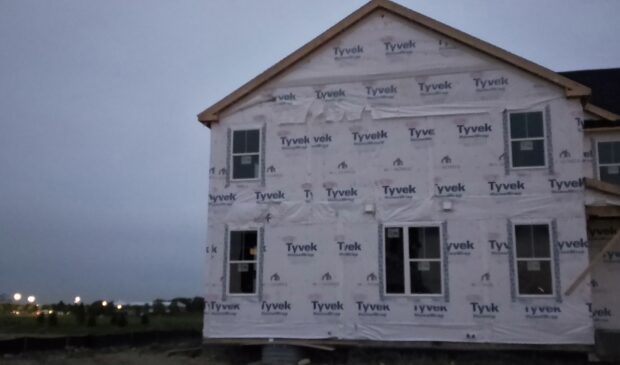Council gets briefed on improved path to affordable housing
Thursday, March 7, 2024 by
Amy Smith Now that the state Legislature has added more guardrails to a financing mechanism for affordable housing developments, Austin officials are exploring how to proceed with plans to put more housing on the ground under the welcomed reforms.
At its work session Tuesday, City Council heard a presentation from Housing Department staff on the Austin Housing Public Facility Corporation – and public facility corporations in general – given recent interest in this financing tool since the enactment of House Bill 2071, which the Legislature approved last year.
Council created Austin’s public facility corporation in 2022 to expand access to bond dollars for critical workforce housing. The state first authorized private facility corporations in 2015 to facilitate more affordable housing projects across Texas. In exchange, property owners of these developments received tax exemptions at 100 percent. It wasn’t too long, however, before public watchdogs were crying foul, citing cases in which developers were taking advantage of lucrative tax breaks while jurisdictions and tenants were getting stiffed.
As Mandy DeMayo, interim director of the city Housing Department, tactfully explained: “There were found to be significant abuses in the use of public facility corporations where jurisdictions were somewhat blindsided when developers from outside of their community were coming in and taking significant amounts of property off the tax rolls without a commensurate public benefit.”
In news reports of the Legislature’s reforms last year, affordable housing advocates said they welcomed the fixes, but more work was still needed to tighten loopholes in the original law.
Looking ahead, DeMayo told Council, “We know that there are additional opportunities for utilizing our PFC for the development of housing and the inclusion of affordable housing, which we have not yet done. Our conversation today is exploring those opportunities … to further incentivize affordable housing development and to complement what we already do as the Austin Housing Finance Corporation.” The AHFC is the city’s more familiar public nonprofit arm.
Nicole Joslin, real estate division manager with the Housing Department, said the revisions to the state law included clarifications on jurisdiction and approval requirements, plus the addition of audit and monitoring requirements. It wasn’t immediately clear who would be responsible for the audits or how they would be reported to Council. Tenant protections and deeper affordability levels were also added as remedies.
Housing staff envision the Austin Housing Finance Corporation and the PFC complementing one another since each operates using different criteria. Under the Austin Housing Finance Corporation, for example, 90 percent of housing units must be income-restricted, maximized at 50 percent median family income (MFI) and below.
Under the Austin Public Facility Corporation, 50 percent of the units must be income-restricted, with 40 percent of the units at 80 percent MFI and 10 percent of the units at 60 percent MFI. Unlike the AHFC, the private facility corporation is not eligible for gap financing. Moreover, the city would lease its publicly owned property to the prospective developer without becoming a general partner under the PFC structure.
“We would look for development partners with a proven track record of multifamily development in Austin so that we feel comfortable taking a more limited role in the project,” Joslin said.
According to related documents provided to Council, geographic locations for AHFC and PFC projects also vary. AHFC locations are dictated by funding source priorities, while the PFC’s geographic priorities are located on historically exclusive and high-opportunity census tracts.
Photo by AG20044018, CC BY-SA 4.0, via Wikimedia Commons.
The Austin Monitor’s work is made possible by donations from the community. Though our reporting covers donors from time to time, we are careful to keep business and editorial efforts separate while maintaining transparency. A complete list of donors is available here, and our code of ethics is explained here.
You're a community leader
And we’re honored you look to us for serious, in-depth news. You know a strong community needs local and dedicated watchdog reporting. We’re here for you and that won’t change. Now will you take the powerful next step and support our nonprofit news organization?






